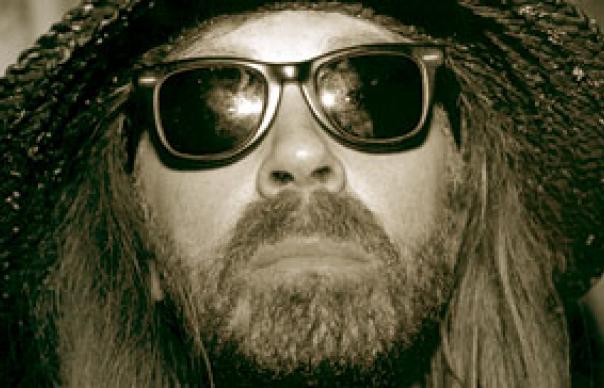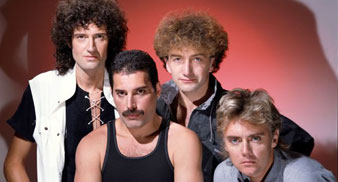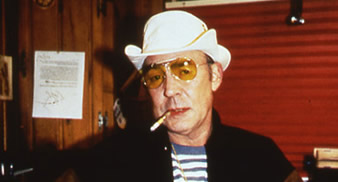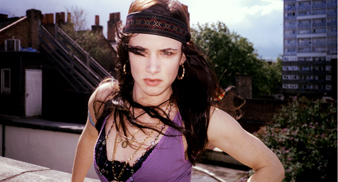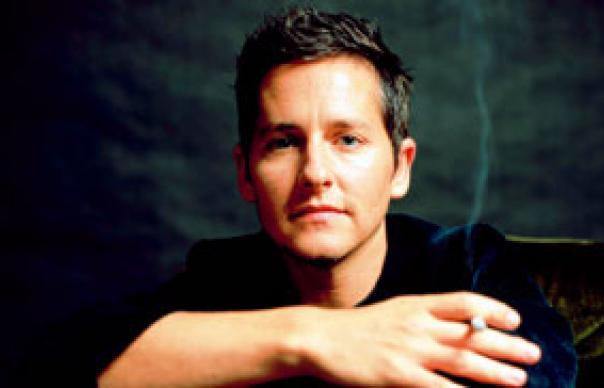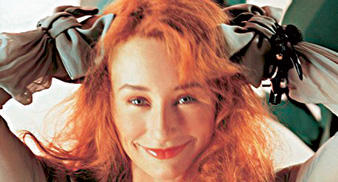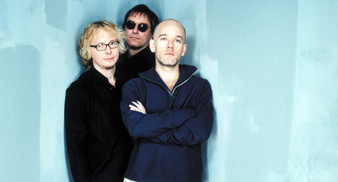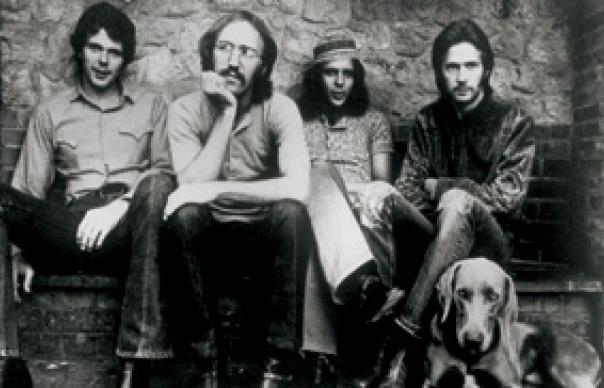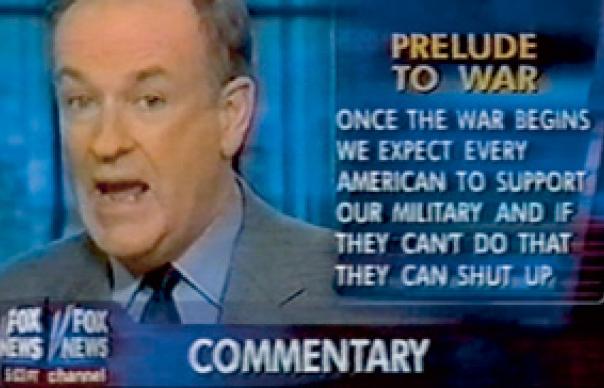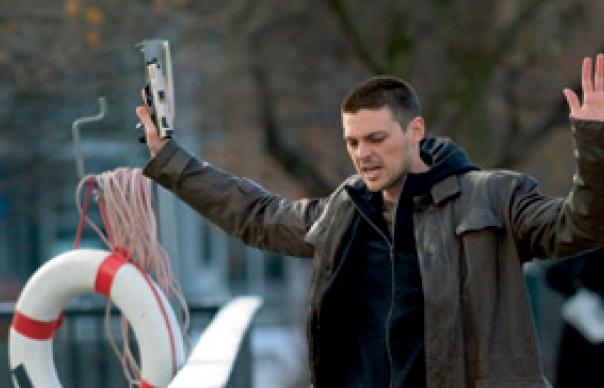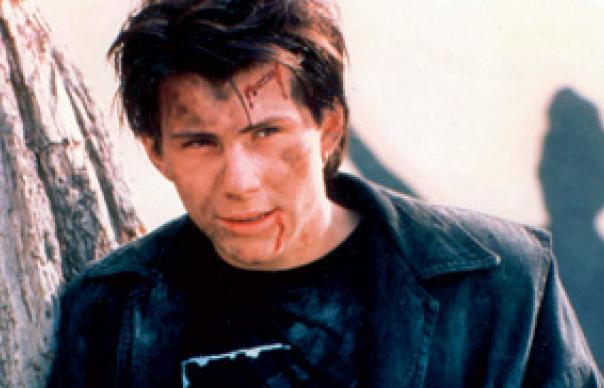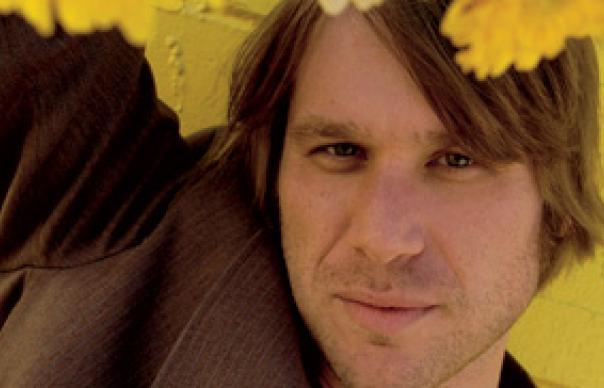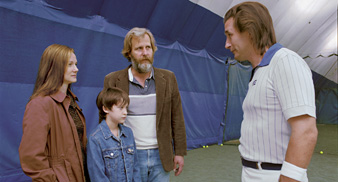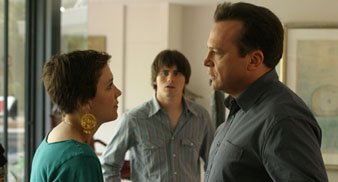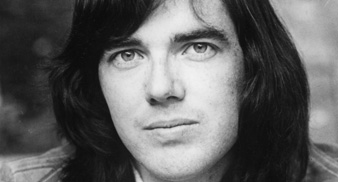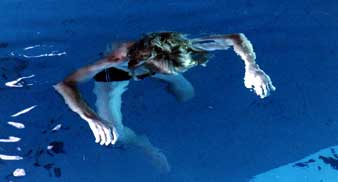Kim Fowley
The last of the underground heroes, Kim Fowley is an eccentric producer, writer, singer, publisher and svengali whose career began in 1960 with The Hollywood Argyles’ monster hit “Alley Oop”. Since then, he’s worked with everyone from Lennon and Hendrix to Jimmy Page, Gram Parsons and The Runaways and claims to have shifted 102 million records. As interviewee in George Hickenlooper’s new film The Mayor Of Sunset Strip (about the life of Fowley contemporary Rodney Bingenheimer, see below), he has all the best lines, though he manages to save a few for Uncut:
UNCUT: You had a highly unorthodox childhood. When you came back from a foster home as a six-year-old to live with your father after the war, how did he treat you?
FOWLEY: My Dad said “Let’s see if you have balls. It’s time for you to go to Hollywood.” So he put me in a sailor suit and drove me down to Schwab’s drugstore, sticks me on the soda fountain and says “Everybody gather ’round! This is my son”. And he starts educating me: homosexuals, Mafia guys, prostitutes, out-of-work actors, lawyers. He went through a list of all the human filth, slime and garbage that were there. Then two women came over, started rubbing my six-year-old balls and stuck a candy cigarette in my mouth. And everyone applauded.
In your ‘teens, you found some ‘unusual’ employment.
I was a male prostitute for about two years up until 1959. What it was, I worked for a psychotherapist who helped out burns victims. If you were a woman burns victim and you wanted to be caressed after a skin-graft, or a widow who wanted to be loved again, or you were a blind woman and you’d never had a man’s penis in your mouth or hand, somebody would come in and do all that shit as part of the therapy. And it was me and some others. It was all in the context of a doctor’s office between nine to five. If you’ve ever made love to a woman with burns all over her body, you can make love to any slob anywhere. I know every trick.
When you first came to Britain in 1964, didn’t you get into trouble with Mick Jagger over the alleged size of his manhood?
It wasn’t me, it was PJ Proby who pissed him off. He said his cock was bigger than Jagger’s. Jean Shrimpton’s sister Chrissie was Proby’s girlfriend for about a minute. During the height of passion, she told Proby his cock was bigger than Jagger’s. So Proby ran out of the hotel room and announced it to the press. Allegedly, the press all drove straight over to Jagger’s house, woke him up out of a sound sleep and asked him if it was true. The other thing was, there were two guys: Charlie and Inez Foxx, who’d done “Mockingbird”. Now, Charlie moved like this [gets up and does this straight-backed, rubber-legged shuffle, like a praying mantis on a water bed] and when Leon Russell later saw Jagger on stage, he said he’d stolen his moves from Charlie. Which made Jagger mad. Then Marianne Faithfull told Jagger he sounded like Kim Fowley, vocally. And he slammed the limousine door on her foot. Last time I saw him was in 1965, when I was walking by RCA and he was coming out. He looked at me and said “Fuck you!” and I said “Well, fuck you!” and carried on walking. Mick and Madonna are the same person. They had very little to start with and turned it into a lot.
You also recorded with Andrew Loog Oldham.
Andrew summed me up perfectly on the set of Ready Steady Go!. We were watching the Stones up on stage, when he turned to me and said “Your tragedy is that you could be Mick or you could be me. But because you can do both, you’ll never do either as well as you’ll do one of us”. He summed up my whole life thirty years ago. Fuck you and thank you, Andrew!
You were also next-door neighbour to Hendrix in Bayswater.
Jimi’s own definition of what he did, when I asked him, was “I do Science Fiction Rock’n’Roll”. When he showed up at the Bayswater Hotel in 1965, he had this giant suitcase full of science fiction books. It was full of Ray Bradbury and Philip Jose Farmer. Jimi was a literate, well-read guy. He said “This is the source of my music” and played me “Martian War Machine” on acoustic guitar. People used to say it was all LSD, but it was science fiction.
How do you see your own career?
I’ll paraphrase the Queen of France talking to Cyrano de Bergerac: “Cyrano, you’re a wonderful man”. “No, your majesty. I do wonderful things”. Kim Fowley is probably a piece of shit and an asshole in real life, but I go out of my way to do stuff I find interesting, which often benefits musical people, because I’m a musical person. Then the audience overhears some of this and is entertained. So I perform an important function: I’m an enabler, a mentor, a catalyst. I don’t hang out. I don’t smoke dope, I’m not gay, I’m not black, I’m not Jewish, I’m not in the mafia, I’m not from England, I don’t remix, I don’t go to clubs. So what do I do? I make hit records. I sell product. I’m so empty that I don’t have distractions. If somebody has substance or has developed something, I have the time for them. The guys and girls who make it – whether you like the music or not – do it right. There’s a brain and focus at work. I think Kylie Minogue is as important as BB King. Britney Spears is like Beethoven. At that space in time, when somebody needed to be her, she was there and did it. And you have to respect that. A lot of times, people dismiss categories of music completely.
What are your thoughts on The Mayor Of Sunset Strip?
Rodney Bingenheimer is a victim of ugliness, mediocrity and illusion. And somebody decided that would make a good movie. So they spent $2m over five years, filming Little Rodney. Then they got everybody from David Bowie to Kim Fowley to Brian Wilson to talk about Little Rodney. They put more time into this movie than they did on Star Wars, The Greatest Story Ever Told and Fantasia! The world wants to see Rodney Bingenheimer – with a face somewhere between Rumpelstiltskin and a squashed prune – to sit there and talk about how nobody loves him and how he’s not getting laid. So if somebody wants to spend that sort of time and money on drafting in A-list people to verbally proclaim Rodney as Jesus, then that’s fine. However, if you take a turd and put it in a bag of diamonds, it can still be a good piece of work. My only resentment is that I hate to be joined at the hip to this chihuaha. Kim Fowley, after being identified with Rodney, means I’m not very gracious about sharing this article. I bet your interview isn’t as good as mine, asshole!
Rodney Bingenheimer
One of the most influential figures in American pop, DJ Rodney Bingenheimer started broadcasting on LA’s KROQ-FM in August 1976. He was the first to introduce The Ramones, Sex Pistols, Clash, Smiths, Nirvana and Oasis to the West Coast. From 1972–’75, he ran Hollywood’s hippest rock star hangout, Rodney Bingenheimer’s English Disco. He’s currently the subject of George Hickenlooper’s excellent documentary, The Mayor Of Sunset Strip. Uncut catches up with Bingenheimer at the London premiere.
UNCUT: Are you happy with the final cut?
BINGENHEIMER: I would have wanted more music and a little more about the bands, but of course, they wanted to focus on my life. It was an enjoyable experience. I learnt a lot about movie-making. It could be my next career.
How much access did you allow the filmmakers?
They more or less had access to me all the time. I mean, it took five-and-a-half years to film. I think the only way to make a great documentary is to spend the right amount of time filming it. I wasn’t really allowed to see anything as it was being filmed. There were a couple of things I saw beforehand, but I didn’t see the finished film until I went to the first screening. Basically, it’s all in there. I didn’t have any say in the final edit.
What about the reaction at the premieres?
I got a standing ovation in New York and two in LA. I walked into the room and thought ‘Wow!’ It was something to be proud of. Joan Jett came with me to the New York premiere. Nancy Sinatra came with me in LA. She said the film was OK, so I was happy with that.
It’s all a long way from Mountain View, California – your home town
I grew up near San Francisco. It was a very small town, very quiet. My childhood was amazing. I was always collecting things: ducks, cats and even records back then. That’s when I first saw [producer, occasional friend and …Sunset Strip co-star] Kim Fowley’s name on “Popsicles And Icicles” [by The Murmaids]. And I always listened to the radio. I always knew I wanted to get involved with music later on.
In your ‘teens, your mother abandoned you at the home of actress Connie Stevens, right?
I was around fourteen, and it was the first time I’d been to LA. It was an amazing, H-shaped house. I loved her because of ’77 Sunset Strip and all those TV shows. She was a great singer too, made some amazing albums. There’s one particular album – Connie Stevens Sings The Hank Williams Songbook – that’s just incredible.
What was the appeal of LA?
I had a choice between San Francisco and LA. So it was either drugs or mini-skirts with go-go boots. I knew what I wanted! LA was just beautiful, like a dream. Everything just seemed so bright. I’d go down Sunset Strip where everyone would be walking up and down, smiling, happy. Everyone seemed so friendly. I wanted all of the bright lights. At first, I couldn’t get into any of the clubs – The Whiskey, The Trip – ’cause I looked so young. Later, I’d hang out with The Byrds at Ben Frank’s.
You got the job as Davy Jones’ stand-in on The Monkees TV show. And initially, Sonny and Cher took you in.
When I was a kid, I went to see them open for the Dave Clark Five in Redwood City, just outside of Mountain View. And of course, I had the bangs, the hair, loved the music. They told me ‘If you ever get to LA, look us up’. It seemed like a good enough sign. So I looked them up when I got there and they took me in, took care of me. I really learned from them. They’d take me to Gold Star Studios when they recorded. That’s me playing tambourine on “Bang Bang”. I was in the studio for the whole of The Sonny Side Of Cher and The Good Times soundtrack. I took my Mom to that one.
You became friendly with Phil Spector too. Weren’t you there for the “River Deep Mountain High” sessions?
I was on the corner of Sunset and Vine and met Brian Wilson. When I told him Phil Spector was over at Gold Star with Ike and Tina Turner, Brian said ‘Let’s go!’. So I go into Gold Star with Brian, and we see Mick Jagger sitting there, watching the recording. So we all watched them go through it, take after take. I remember one particular take was truly amazing, but they’d forgotten to turn the machine on. Watching Spector and Jack Nitzsche was incredible. Phil told jokes between takes, trying to keep everyone refreshed. I was there for a lot of the Beach Boys’ sessions too, including the whole of Smile and 20/20. I’m there on “Vegetables”, with Paul McCartney on headphones. I’m yelling out on there. Charles Manson was there. It was quite wild.
By the turn of the decade though, you’d left LA for London.
After the Manson murders, there was a kind of void in LA. The whole thing got kinda boring, so I came to London. I really didn’t like all the new singer-songwriters with sprouting beards. My girlfriend, Melanie McDonald, and I went to the David Bowie recording sessions for Hunky Dory. Around that time, we were all ready to get married. Then Bowie’s manager, Tony DeFries – who’d take us out to dinner every night – eloped with her and she ended up marrying him. I lost my girlfriend to Bowie’s manager. In the meantime, I was staying at Ealing Broadway and we’d go to the Cellar club, where they played this amazing music by Slade and T.Rex. That was where Bowie gave me the idea for doing a nightclub in LA.
When you came back, you opened up Rodney’s English Disco on the Strip.
David Bowie would come, Roxy Music too. It was a much bigger place than the Cellar. We had huge T.Rex and Suzi Quatro posters everywhere and whole lines of booths. [The Runaways’] Joan [Jett] and Jackie [Fox] would always come in. And Marc Bolan. Elvis came in too, for English beer and steak & kidney pie. I’d send English beer to his recording studio. He introduced me to Frank Sinatra. Led Zeppelin heard there were all these beautiful women at my club, so when they were in LA, they’d take the limo directly from the airport to the club, without even going to the hotel. That famous Melody Maker picture at the booth with Lori Lightning and entourage caused a lot of trouble with their wives. They were wild. Then we’d have Iggy and the Stooges. There was nothing like it in LA at all. Everyone looked like miniature rock stars.
Interviews by: Rob Hughes


